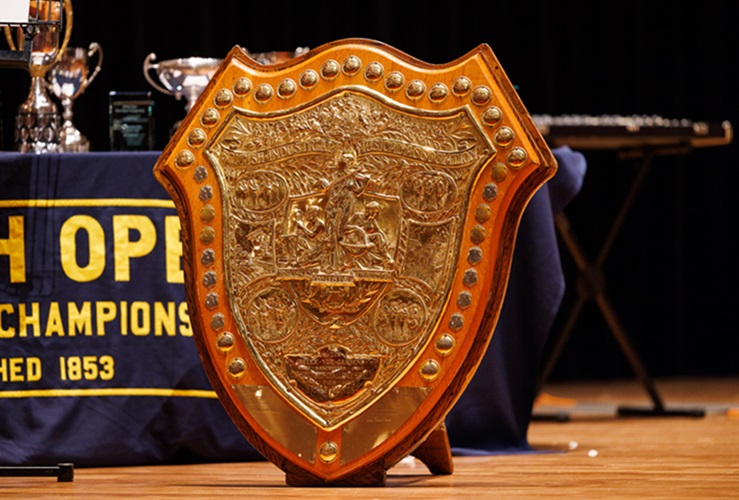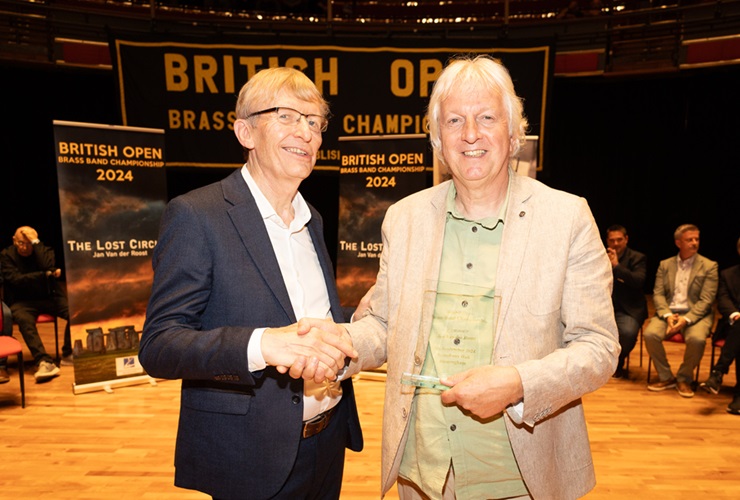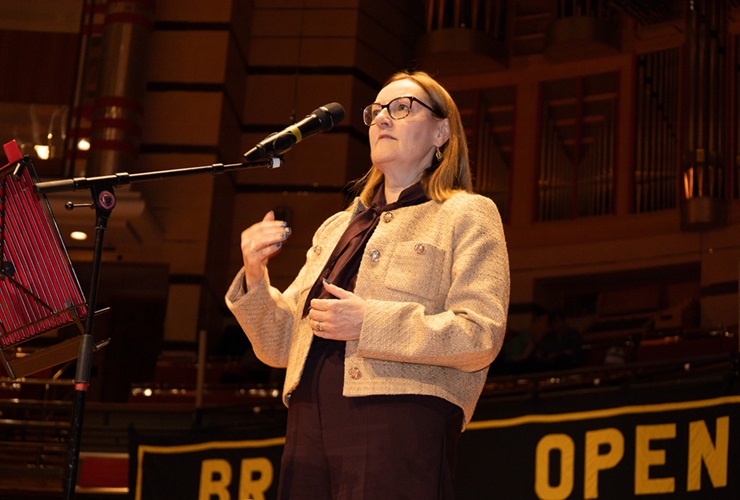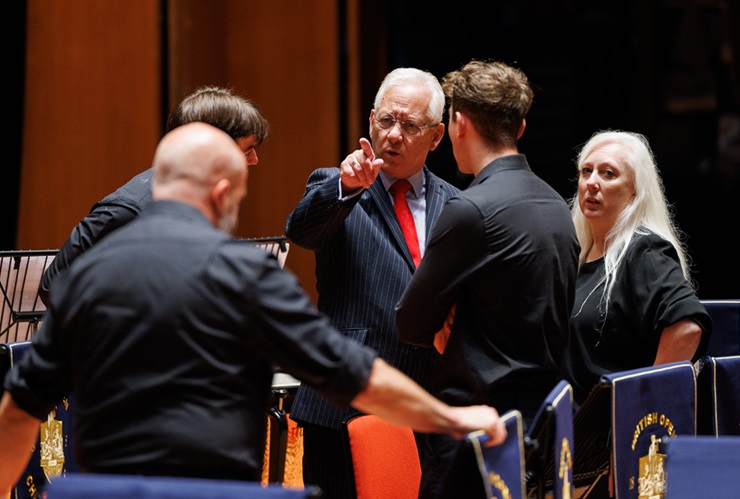
Challenges ahead
The 170th British Open marked the start of a new era for the world’s oldest major championship event.
Changes have been instigated by the Mortimer family - some more significant and obvious than others, but all aimed at providing a sustainable foundation on which it, and the Spring Festival, can be enhanced.
The post-Covid realities of contest promotion has meant partnerships and links being renewed, restored and initiated – from the excellent long term relationship with B:Music and Symphony Hall to seeking out potential sponsors and listening to the competing bands though the UK Leading Bands Forum.
Further challenges lie ahead, but as shown on the weekend, the attraction of the British Open to both competitors and listeners alike remains very much in place.
A different test
There was a great deal of pre-contest debate about Jan Van der Roost’s test-piece.
‘The Lost Circle’ did have a neolithic Marmite quality about it – eliciting very different responses from conductors and players before it was performed at Symphony Hall.
However, if the ultimate litmus test is marked by bums on seats, it appeared the audience certainly liked it.
it was a reminder that brass band music can still be absorbing, engaging and intriguing without resorting to cheap theatrics and shock and awe bombardment.
Given the dominance of so many elite level test-pieces that are primarily vehicles for technical virtuosity, it was a reminder that brass band music can still be absorbing, engaging and intriguing without resorting to cheap theatrics and shock and awe bombardment.
Technically difficult (as benefits a piece used at this level) it was also musically challenging – asking demanding questions in mastering the more aesthetic components of contest playing – texture and colour, style and phrasing, balance and focus, dynamic restraint and tempo relevance.
The best still displayed their virtuosity - but not at the expense of style and artistry (as shown by the trio of exceptional ‘Best Soloist’ award winners) – and that is surely what should mark out the finest bands at the finest contest in the world.
European additions
Whereas 2024 was the 100th anniversary of the first non-UK band winning the British Open title, next year will mark the tenth anniversary of the first appearance of a European band at the event.
Since Brass Band Burgermusik Luzern’s appearance in 2015 Symphony Hall has been graced by other Swiss, Belgian, Norwegian and French contenders. Established by a bilateral invitational link to the European Championships (the top English band at the Open represents its nation at the event), they have greatly enhanced the contest’s level of competitive excellence.
Building on that will be essential to the long-term sustainability and appeal of the British Open.
And whilst that may eventually well mean fewer UK bands, as shown this year, being able to compete against the likes of Brass Band Treize Etoiles should be an inspirational aim rather than merely an assumed entitlement.
Firsts
As welcome as it was to see Anne Crookston become the first female adjudicator at the British Open, it was also a mark of just how long overdue it has been too.
Any sense of celebration should be countered by the fact that despite the first work by a female composer being used at the event in 1957 with Helen Perkins’ ‘Carnival’, only one other (by the same composer in 1962) has been performed since.
Any sense of celebration should be countered by the fact that despite the first work by a female composer being used at the event in 1957 with Helen Perkins’ ‘Carnival’, only one other (by the same composer in 1962) has been performed since.
Meanwhile, Betty Anderson became the first female conductor at the contest in 1978, and whilst others have followed the wider barriers to enabling inclusivity and diversity in elite level banding still need to be broken so that many more can lead bands onto the British Open stage.
Talent should know no barriers – as was shown by Mathilde Roh of Brass Band Treize Etoiles becoming the first female winner of the Stanley Wainwright Memorial Trophy as ‘Best Soloist’ since 2016.
Let’s hope that ethos continues at the British Open and every other contest in the banding world.
David Hayward
One of the great contributors to the success of the British Open over many years now has been the role played by compere David Hayward.
It’s such a difficult role to fill – part announcer, part health and safety officer, part information guide, part master of ceremonies and part quick thinking solver of on and off-stage problems.
Like all the very best rugby referees he is always visible and always listened to by the on-field performers, but also admired most when people in the crowd forget that he is there
Like all the very best rugby referees he is always visible and always listened to by the on-field performers, but also admired most when people in the crowd forget that he is there (even though he invariably wears the trendiest of eye-catching contest day shoes).
That shouldn’t be the case, and on the weekend he was once again an outstanding master of his craft – backed as always by his wife Sarah who along with Richard Milton and his team of contest administrators did so much to ensure the day ran as smoothly as it did.


















